Israel claims preemptive strike on Iranian drone operation in Syria
In a rare announcement, the Israeli government said its military aircraft carried out a preemptive strike against Iran-linked targets southeast of Damascus on Sunday, August 26, allegedly thwarting a planned drone attack on Israeli territory.
“The IDF, by Israeli aircraft, was able to thwart an Iranian attempt led by the Quds Force from Syria to conduct an attack on Israeli targets in northern Israel using killer drones,” Israeli Defense Forces spokesperson Jonathan Conricus told reporters early Sunday.
The IDF said the drones and Iranian advisors had arrived in Damascus days earlier in preparation to launch a coordinated attack on Israeli territory.
IDF Chief of Staff Lieutenant General Aviv Kochavi alleged on Sunday that Islamic Revolutionary Guard Corps leader Qassem Soleimani personally oversaw the planned attack.
Israeli Prime Minister Benjamin Netanyahu called the strike a “major operational effort” that “thwarted an attack against Israel by the Iranian Quds Force and Shiite militias.”
“Iran has no immunity anywhere,” Netanyahu said.
A senior commander of the IRGC, which oversees the Quds Force, denied any members were killed in the strike.
Mohsen Rezaei, who also serves as secretary of Iran’s Expediency Discernment Council which advises supreme leader Ayatollah Khamenei, said the IRGC’s “advisory centers” had not been harmed.
“This is a lie and not true,” Rezaei said, adding that the U.S. and Israel are incapable of striking their “various centers,” Reuters reported.
Syria’s state-run SANA News Agency said that most Israeli missiles were intercepted and claimed that purported videos of the strike circulating on social media were either fabricated or old.
IDF spokesperson Brigadier General Ronen Manelis said the strike came after Israeli intelligence assessed that Iranian pilots would launch a drone attack into Israel on Sunday. Manelis said the strikes were carried out near the town of Aqraba.
He added that the drones were similar to those deployed by Yemen’s Houthi rebels against Saudi Arabian targets, the Jerusalem Post reported.
The Houthis have launched a number of drone attacks on Saudi Arabian territory as part of Yemen’s ongoing civil war, and claim to have brought down an American MQ-9 Reaper drone last week. The U.S. military assesses that advances in Houthi surface-to-air capabilities are being “enabled” by Iran.
Also on Sunday, two drones crashed near Hezbollah offices in southern Beirut. Hezbollah and the Lebanese Army said they were Israeli, but the Israeli government refused to comment.
Hezbollah leader Hassan Nasrallah said that Netanyahu should expect a response. Lebanese Prime Minister Saad Hariri described the incident as an act of Israeli “aggression.”
U.S. Secretary of State Mike Pompeo called Hariri on Sunday to “stress the need to avoid any escalation,” the prime minister’s office said.
The Israeli strike in Syria comes just days after U.S. officials confirmed to AP and the New York Times that Israel had conducted an airstrike last month against an Iran-linked militia base south of Kirkuk.
The officials told AP that the July strike left two Iranians dead. The attack is the first known Israeli strike on Iraqi soil since 1981, when IDF aircraft bombed the Osirak nuclear reactor southeast of Baghdad.
The confirmation came amid ongoing accusations surrounding a series of unexplained explosions at Hashd al-Shaabi (Popular Mobilization Units, or PMU) bases throughout Iraq.
Many Hashd al-Shaabi militias are supported by Iran’s IRGC.
Deputy PMU head Abu Mahdi al-Muhandis blamed the incidents on the United States and Israeli drones. The head of the PMU later walked back that accusation.
Israeli officials have not taken credit for the explosions at Hashd bases in Iraq. Asked last week about the incidents, Netanyahu said that his government will strike Iranian forces “wherever it is necessary,” and said they have already done so.
U.S. Central Command denied involvement in the explosions.
Washington assesses that Iran-linked militias have been moving missile systems into Syria via Iraq for use against Israel. The State Department has said the U.S. supports Israeli strikes against Iranian-linked targets in Syria “one-thousand percent.”
Reuters cited Iranian officials last year as saying the transfer of Iranian ballistic missiles into Iraq were intended as a deterrence to any possible American or Israeli attack on Iran.
More than 5,000 U.S. troops remain in Iraq, where they are training and advising Iraqi security forces to combat remnants of the Islamic State.
Iraqi lawmakers pushed earlier this year to expel U.S. forces from the country after Donald Trump said that he intended to leave American troops in the country to “keep an eye on Iran.”
Former Director of National Intelligence Dan Coats told the Senate in January that IRGC-linked Hashd al-Shaabi are the “primary threat” to U.S. forces in Iraq.


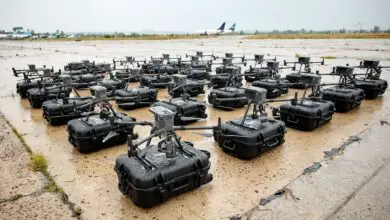
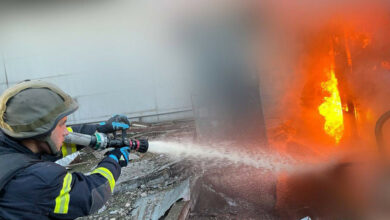
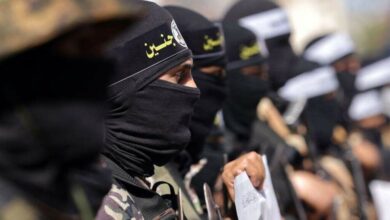
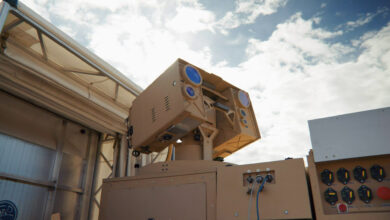
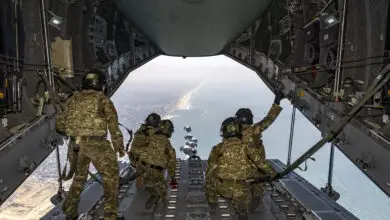
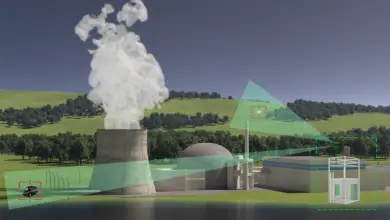



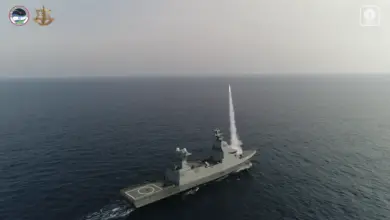
One Comment